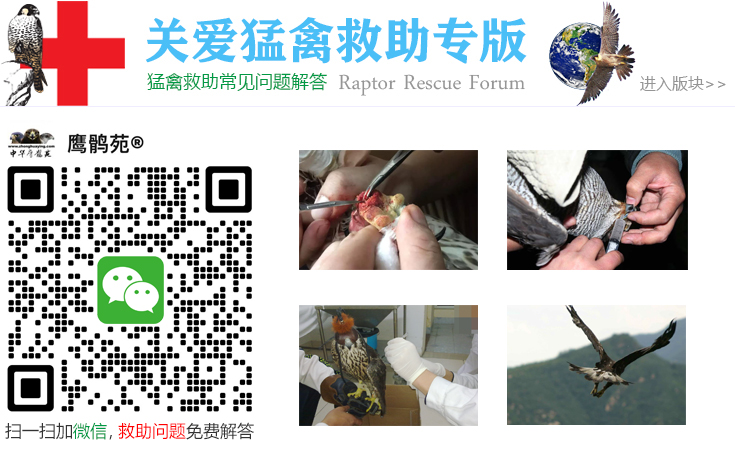一键注册,浏览隐藏内容,结交更多鹰友!
您需要 登录 才可以下载或查看,没有帐号?注册

x
我看了看国际鹰猎协会(iaf)的成员名单中竟然没有中国, 不知道为什么. 但是在iaf的鹰猎历史的介绍中,中国有浓墨重彩的一笔。
In China itself the culture of falconry once occupied a very significant role – there are many historic remains in literature, poems, painting and porcelain describing it in the culture of the imperial family, the nobility and the social life of the ordinary people. Chinese falconry had an inseparable relationship with politics and power and written records go back prior to 700BC. These depict a very mature and technical falconry, exactly parallel with techniques used today. The imperial family of the time (Chu Kingdom) were already using falcons, eagles and shortwings in exactly the same way we do. This would put the birth of falconry in the region (if indeed this was where falconry was born) at well over 3 000 years ago.
Falconry was strong in China right into the early 1900’s. It enjoyed imperial patronage and was popular among the aristocracy and even common people all through the centuries; largely due to the medieval society China endured all this time. With the decline and fall of the imperial family in 1912, falconry at a high level became feeble and died. At the same time the falconry of the common people declined through conflict between ethnic groups, invasion by eight different foreign countries and ultimately, World and Civil Wars. Now falconry survives in the ethnic minority groups – the Hui, Weir, Naxi etc. Hunting is not allowed under the Chinese Wildlife Conservation Act of 1989. This act was designed to protect rare species like tiger, bear, panda etc. from shooting and trapping, but at the time no one knew the importance of falconry in the culture of these small and often remote communities. There is now no proper way for young people to learn and pass on their falconry heritage with goshawks and sparrowhawks. How can the heritage and the rich and long cultural history of Chinese falconry be preserved when no one is coming into it? How can it be made legal and official, coordinating relations between falconers and conservation? How can we avoid Chinese falconry disappearing in 10-15 years? Perhaps these are some of the questions that can be addressed under the UNESCO Convention for the Safeguarding of the Intangible Cultural Heritage 2003. 我在这里就不全部翻译了,但是最后的几句话应该引起我们的重视“如今在中国甚至没有合适的方式和渠道教年轻人如何分辨苍鹰和雀鹰。 如果都没有人参与, 那么这种中国古老的鹰猎文化怎么能被继承和保存呢?怎样能使其合法化,怎么样协调驯鹰人和动物保护之间的关系?我们怎么来避免中国的鹰猎文化不在10-15年时间里消失呢? 可悲, 我们自己的古老文化怎么要外国人来重视 | 
